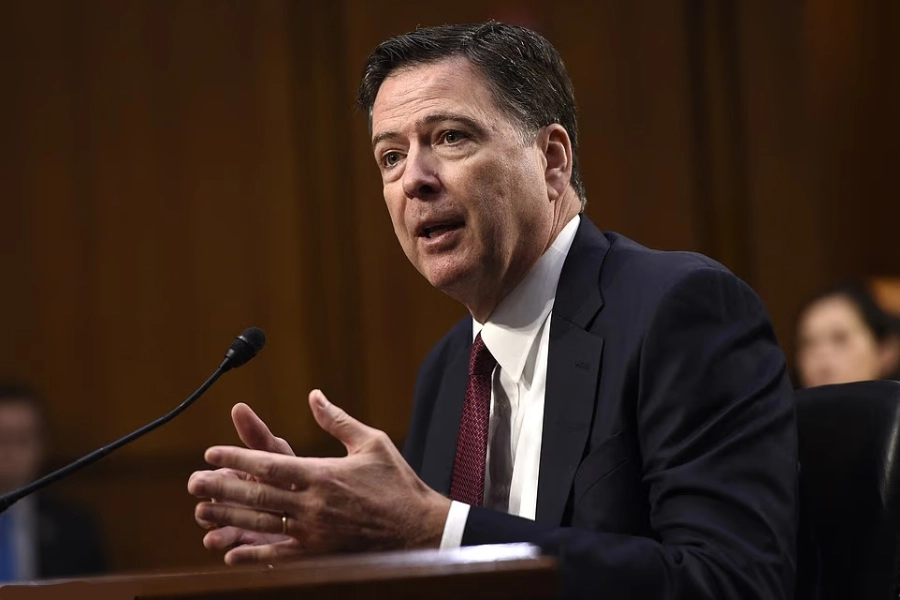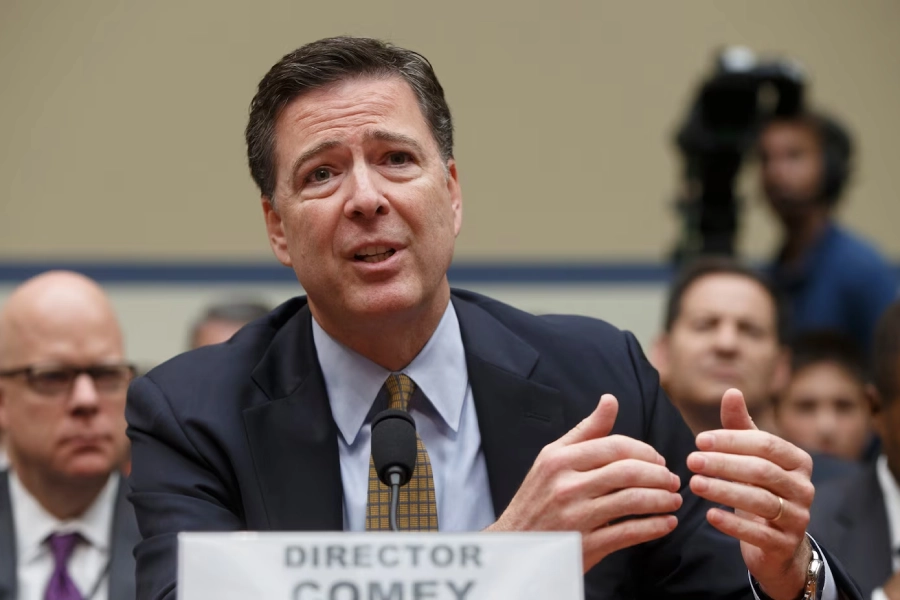In a major political and legal development, former FBI Director James Comey has been indicted on charges related to his testimony before Congress in 2020.
Reported widely by CNN, Politico, and ABC News, this indictment marks a significant escalation in tensions between former President Donald Trump and his political opponents.
The case raises critical questions about the independence of the U.S. Justice Department and the broader implications for federal law enforcement.
 law
law
Why James Comey Was Indicted
James Comey was indicted on two felony charges: making false statements to Congress and obstructing an investigative proceeding. These charges relate to his testimony about the FBI’s investigation into alleged Russian interference in the 2016 presidential election.
Although a third charge was initially proposed, the grand jury declined to pursue it, leaving Comey facing only the two counts.
The indictment follows President Trump’s public demand for the Justice Department to act immediately against political adversaries. Sources suggest that political pressure influenced the timing and handling of the case, including new appointments in the Eastern District of Virginia’s U.S. Attorney’s office, which facilitated the indictment.
Political Implications of the Comey Indictment
The Comey indictment has triggered intense debate in Washington. Trump supporters praise it as accountability for a perceived political enemy, while critics warn it represents dangerous political interference in the judicial process.
Legal experts note that replacing a U.S. Attorney to secure the indictment undermines the legal system’s integrity.
Observers view the indictment as a sign of a new phase in Trump’s post-presidential influence, where legal mechanisms may be leveraged against rivals.
The case is seen not only as personal retribution but also as a signal to federal officials about the consequences of opposing Trump.
Legal Process Following the Indictment
Comey has been summoned for arraignment on October 9, 2025. His defense team, led by Patrick J. Fitzgerald, denies the charges and plans a vigorous courtroom defense.
Federal indictments carry serious potential penalties; if convicted, Comey could face up to five years in prison, though actual sentences often fall below the statutory maximum. Analysts emphasize that success depends on federal judges and a trial jury, not just the grand jury.
Ethical Concerns Surrounding the Indictment
The indictment has raised ethical questions. Initially, federal prosecutors found no probable cause to charge Comey.
Despite this, Lindsey Halligan, appointed by Trump to lead the Eastern District of Virginia, pushed the case to the grand jury. Halligan had no prosecutorial experience, drawing criticism from legal experts and civil liberties advocates.
Comey’s son-in-law, Troy Edwards Jr., resigned as a senior national security prosecutor in the same office, citing his oath to uphold the Constitution. His resignation highlights internal tensions between professional duty and political pressure.
Public Reaction to the Comey Indictment
The public response has been sharply divided. Trump supporters see the indictment as justice for mishandled investigations, while Trump himself celebrated Comey as one of the “worst human beings” in the country.
Critics argue that the case signals authoritarian tendencies, potentially undermining trust in federal institutions. Former Obama-era DOJ officials called it a national tragedy that could transform the Justice Department into a political tool.
Historical Context and Previous Legal Actions
This indictment comes amid broader legal and political conflicts involving Trump’s administration.
Past politically charged investigations, such as the John Durham probe, ended in acquittals, highlighting the difficulty of prosecuting high-profile political cases. Comey’s previous controversies include the FBI’s handling of Hillary Clinton’s emails and the Russia investigation.
His firing and subsequent criticism of Trump add layers of context to the indictment.
Implications for the Justice Department
The indictment may undermine public confidence in the DOJ’s independence and create a chilling effect on federal prosecutors handling politically sensitive cases.
Judges and juries are likely aware of the publicized nature of the case and the unusual appointment of the new U.S. Attorney, which could influence perceptions of fairness.
Next Steps in the Legal Battle
Following the indictment, the legal process will include arraignment, pre-trial motions, and potentially a jury trial. Comey’s defense is expected to emphasize the lack of probable cause, the political context of the charges, and the legality of DOJ actions targeting political opponents.
The case tests how courts handle politically charged indictments under intense public scrutiny.
Conclusion
The indictment of James Comey represents a pivotal intersection of law, politics, and public perception.
It underscores the challenges of judicial independence amid political pressures and highlights the stakes when federal law enforcement intersects with partisan conflicts.
The nation will closely watch the proceedings, which could have lasting implications for Comey, the DOJ, and the rule of law in the United States.
FAQ
Why was James Comey indicted?
James Comey was indicted on charges of making false statements to Congress and obstruction of an investigative proceeding, related to his testimony on the FBI’s 2016 Russia investigation.
What does “indicted” mean in James Comey’s case?
Being indicted means Comey has been formally charged by a grand jury. It is the start of a criminal case, but does not imply guilt.
When is James Comey’s arraignment?
James Comey has been summoned for arraignment on October 9, 2025, where he will hear the charges and enter a plea.
Could James Comey go to jail if convicted?
Yes. Conviction could lead to up to five years in federal prison, though sentences are often less than the maximum.
Did political pressure influence the indictment?
Reports indicate that President Trump publicly demanded immediate action from the DOJ, and a new U.S. Attorney with no prior prosecutorial experience was appointed to lead the case.
What is the role of Comey’s son-in-law in this case?
Troy Edwards Jr., Comey’s son-in-law and a federal prosecutor, resigned from his position, citing his oath to uphold the Constitution amid potential conflicts of interest.
Has Comey responded to the indictment?
Yes. Comey stated on Instagram that he is innocent and expressed confidence in the federal judicial system, saying, “Let’s have a trial, and keep the faith.”
What are the broader implications of this indictment?
The indictment raises questions about DOJ independence, political influence in federal prosecutions, and potential chilling effects on federal officials handling politically sensitive cases.
Are there other cases like this under Trump’s DOJ?
Yes. The Trump administration has pursued or threatened legal action against political figures such as John Bolton, George Soros, and Adam Schiff.
Where can I follow updates on James Comey’s indictment?
Updates are available through CNN, ABC News, and POLITICO, which provide continuous coverage of legal filings, court proceedings, and public statements.

